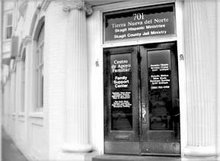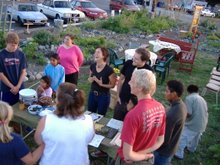 Fall 2005
Fall 2005Chris Hoke
Another captive was set free last month. Ramón was facing thirty or more years in prison at age nineteen, under four counts of rape, burglary, and kidnapping.
One Thursday night he walked into the Bible study at Skagit County Jail, where we would ask the Holy Spirit for strength to bless and forgive our enemies.
While we stood in a circle, Ramón quietly forgave and blessed the young woman who had falsely accused him, as well as the man who had murdered his brother. The following week, Ramón was unable to contain his excitement. After he had released this woman from the bondage of judgments and anger, the very next morning the prosecutor’s office received a handwritten letter in which she confessed her accusations to be lies, dropping the charges and apologizing. That night in the jail, Ramón practically led our worship. He told how that week he gave his life over to Jesus. He then initiated prayer for other inmates in our group.
Last week, he insisted I go with him to his nephew’s trial. There, beside me on the back bench, he prayed with more maturity and simple conviction of God’s power than I’ve ever seen. After his nephew was released less than an hour later, Ramón stood with his mother, sister and nephew in the parking lot, under the blue sky. Ramón looked them individually in the eye: “God is real,” he said in Spanish, nodding firmly. “He’s stronger than any judge or prosecutor.”
Blessing our enemies is a teaching we have all heard, but not one I grew up seeing practiced in any congregational setting. Maybe it’s because we see no real or immediate benefit in it—a nearly impossible command.
Here on the margins, we are learning to trust the power of Jesus’ call to forgive and bless our enemies. Forgiving love breaks the chains that shackle us to our enemies.





